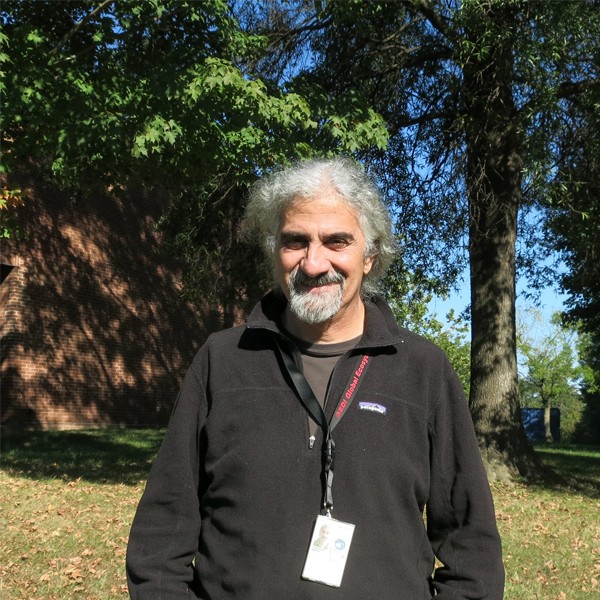Prestigious Helmholz Fellowship Awarded to Professor Ralph Dubayah
Professor Ralph Dubayah of UMD’s Department of Geographical Sciences was honored with a 2019 Helmholtz International Fellowship Award. The award includes a prize of 20,000 euros and an invitation to work with other researchers at the German Aerospace Center or DLR, Deutsches Zentrum für Luft- und Raumfahrt.
“The Helmholtz Association of German Research Centers is among the premier scientific organizations in the world. I am therefore deeply honored to have been chosen as a Fellow,” Dubayah said. “I have worked closely with one such center, DLR, and have been tremendously impressed with the quality, passion and vision of their scientists. I am greatly looking forward to the increased collaboration this award will allow.”
Dubayah is an internationally renowned researcher in the areas of ecosystem characterization for carbon modeling, habitat and biodiversity studies, land surface energy and water balance modeling, spatial analysis and remote sensing science. A common goal of his research is to develop and apply emerging technologies of spatial data acquisition and analysis to address environmental issues at policy-relevant scales.
Professor Alberto Moreira, Director of the Microwaves and Radar Institute, expressed the congratulations of the DLR team members who spearheaded Dubayah’s nomination.
“We are very glad and at the same time very honored with the outcome of the nomination process, which is indeed a most deserved recognition to a very esteemed scientist. Our Helmholtz Alliance ‘Remote Sensing and Earth System Dynamics’ has benefited from Professor Dubayah’s advice and dedication in an unparalleled way,” Moreira said.
Dubayah has also worked with DLR on his Global Ecosystem Dynamics Investigation (GEDI), a NASA mission aboard the International Space Station, for which DLR is a formal collaborator. Dubayah serves as the project’s Principal Investigator.
GEDI launched successfully to the ISS in December via a SpaceX mission, and uses lidar to take 3D measurements of the Earth’s surface and is comprehensively mapping its forests. GEDI is in the early stages of providing insights into how much carbon is stored in our planet’s trees, and how much carbon dioxide they can absorb in the future.
“Professor Dubayah has been playing a leadership role in international satellite coordination for a number of years and has recently established international research partnerships as PI of the NASA GEDI Mission,” said Professor Chris Justice, Chair of the Department of Geographical Sciences. “His current collaboration to study global vegetation structure by data fusion using U.S. and German remote sensing satellites is timely and innovative. We are gratified indeed to see the recognition of his sustained efforts through this award.”
Dubayah said he is excited about the interest and engagement of his international colleagues, including scientists from DLR and from German universities with strong ties to Helmholtz.
“Ultimately, the GEDI team and DLR are hoping to create a global ecosystem structure map based on the fusion of NASA GEDI data with data from the DLR TanDEM-X satellites. I plan to use this fellowship to help intensify this cooperation, to promote research among U.S. and German scientists, and to raise awareness of the important activities of the Helmholz Association internationally,” Dubayah said.
The Helmholtz International Fellow Award was established in 2012 with the goal of strengthening cooperation with world-leading researchers. The recipients of the award are nominated by Helmholtz institutions and chosen by the Helmholtz Executive Committee. The current award winners were selected in May.
In addition to Dubayah, three other scientists were selected: Dr. Warwick F. Vincent, Université Laval/Canada, nominated by the Alfred Wegener Institute, Helmholtz Centre for Polar and Marine Research; Dr. Eleanor Barnes, University of Oxford/United Kingdom, nominated by the Helmholtz Centre for Infection Research; and Dr. Yuval Gefen, Weizmann Institute/Israel, nominated by the Karlsruhe Institute of Technology.
Published on Fri, 06/21/2019 - 13:10


